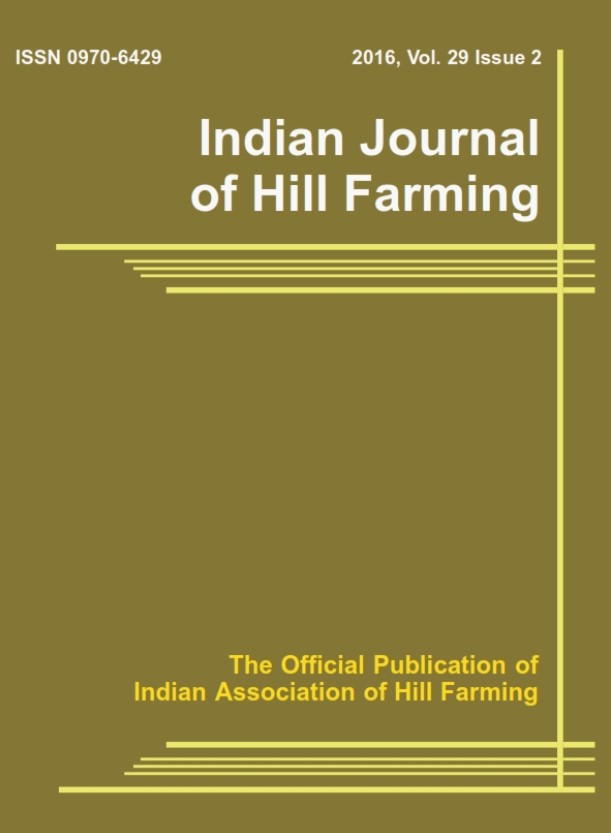Assessment of soil resilience to abiotic stress under diverse management regimes
Keywords:
Enzyme activities, metabolic quotient, abiotic stressors, integrated nutrient management (INM), soil resistance.Abstract
Agriculture is considered to be one of the most vulnerable sectors to diverse stresses. Abiotic stresses such as heat, drought, salinity, heavy metal toxicity etc., limit crop productivity. Soil management plays crucial role in sustaining productivity under multiple abiotic stresses. It is globally agreed that effective resource management restores natural resources and combats stresses. With this view, soils from a 13 years old long-term integrated nutrient management (INM) experiment with diverse management strategies were selected and exposed to abiotic stresses viz. heat, copper toxicity and chloroform fumigation in an incubation experiment. Activities of few hydrolytic enzymes as bioindicators and their resilience towards different stressors under the influence of INM practices were studied to identify the best INM practise to manage abiotic stresses. Results revealed that soils applied with FYM/Green manure had enhanced resilience against different stressor than the sole Chemical fertilized soil. The INM comprising of ½N+½P+K of soil test crop response (STCR) based nutrients [Soil test based fertilizer dose -125:28:62 (for kharif) and 140:40:80 (for rabi)] with FYM (@7.5 tons/ha) and biofertilizers [Azospirillum + Phosphobacter (@4.0 kg/ha)] maintained highest soil enzymatic activities when exposed to different abiotic stresses The INM treatment enhanced the alkaline phosphatase (15.87%, 17.31%, 15.48%), acid phosphatase (25.46%, 18.06%, 27.15%), β-glucosidase (27.3%, 29%, 69.18%) and urease (160.42%, 133 %, 129.41%) activities over the conventional farming when exposed to heat stress, copper toxicity and chloroform fumigation respectively. Integration of nutrients restored the soils and exhibited less stressed when exposed to abiotic stresses, as evidenced by lowest metabolic quotient (qCO2) of 18.43 μg CO2-C h-1 μg-1 MBC. Results also established that with the progress of incubation, INM practices as mentioned earlier, gained speediest recovery of enzyme activities from the different stresses. Among INM, treatment comprising of (½N+½P +K) of STCR-based nutrients + FYM+ biofertilizers triggered the biological indicators when exposed to different abiotic stresses to exert more resistance to alleviate the impact of stress. Therefore, it can be recommended as the best management option for combating abiotic stress after field experiments in diverse agro-ecological condition.




